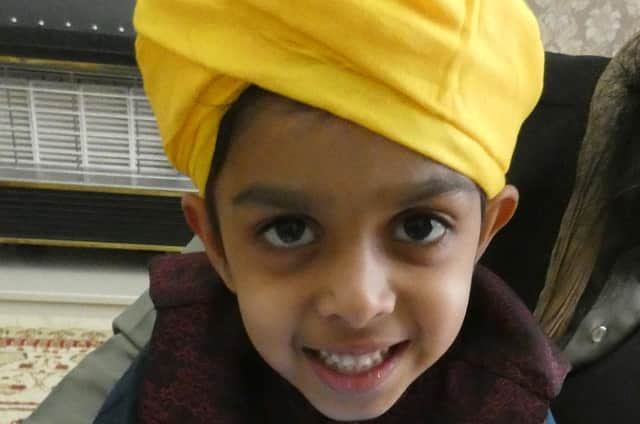Muslim communities in North Kirklees start holy month of fasting


The holy month of fasting known as Ramadan began last Saturday evening (April 2) immediately after sunset when the new moon was sighted.
Muslim households across Dewsbury, Mirfield, Batley, Heckmondwike, Cleckheaton and the Spen Valley have since then been fasting - every day - during daylight hours - and will do so for the next four weeks.
Advertisement
Hide AdAdvertisement
Hide AdThe fasting will continue throughout April until the first week of May.
Ramadan is a very special time for many Muslims, including children like Mohammad Hashir from Heckmondwike.
Although little Hashir is exempt from fasting, he has every reason to feel excited like most youngsters in his age group.
There is always lots of tasty food for him to tuck into during the evenings such as Biryani rice, different curry dishes, quiches, lasagne, pizzas and chips, samosas, kebabs, onion bhajis, fresh fruit, milkshakes and orange juice, as well as ice cream along with a variety of other mouth-watering desserts.
Advertisement
Hide AdAdvertisement
Hide AdHashir also has a favourite box of sweet Arabian dates which he enjoys eating with his parents at sunset.
Like many others kids in his community, Hashir has been wearing traditional Islamic attire at home during the holy month.
A special Ramadan turban known as an “Amamah” is always on his head. According to Islamic beliefs, most prophets wore the “Amamah” turban in their lifetimes.
All adult Muslims are now fasting - in other words abstaining from taking any food or water, from dawn onwards until sunset.
Advertisement
Hide AdAdvertisement
Hide AdThe fasting, this year, begins around 4.30am in the early hours of the morning, and finishes at 8pm in the evening.
The daily Ramadan fasts are seen as a special form of worship for practising Muslims.
The fast is “closed” at the time of sunset when families get together to eat after nearly 15 hours!
Certain individuals do not have to do any fasting in Ramadan. These are little children, pregnant mothers, women going through periodic cycles, those who are too frail or ill, and diabetics who are unable to adjust their insulin injection doses outside the fasting hours.
Advertisement
Hide AdAdvertisement
Hide AdSpeaking to the Reporter Series, Asad Habib Atthari, who is regional community partnerships coordinator for the Dawat-E-Islami project, said: “Fasting has always been an important element of worship not just in the Muslim faith. But it also had an important place in traditional Judeo-Christian culture.
“Fasting in Lent was an important custom for many previous generations of Christian church-goers in British society.
"Going back even further in history, we know all the prophets used to fast regularly so as to show their reverence and love to the Lord God.
“Fasting in the Muslim holy month of Ramadan is also one of the five pillars or foundations of the Islamic religion.
Advertisement
Hide AdAdvertisement
Hide Ad"So Ramadan is a time for many residents in our communities to remember the Lord with a much greater spiritual effort than any they are likely to make in any of the other eleven months.
“Going without food and water during daylight hours in Ramadan is done simply to think of the Lord, and to please that same Lord.”